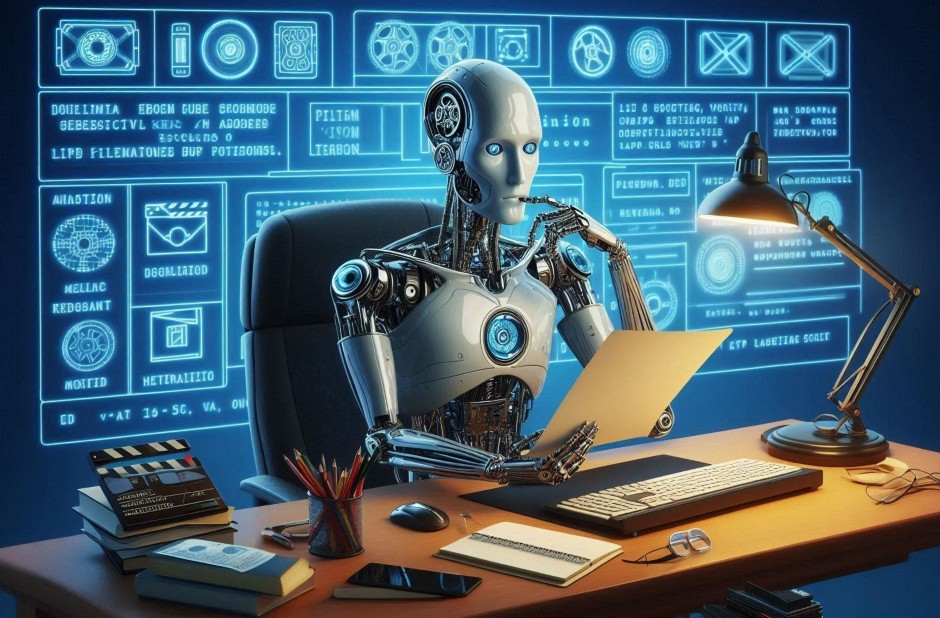In recent years, there has been a significant advancement in the field of Artificial Intelligence (AI) and Augmented Reality (AR). These technologies have become increasingly popular and have the potential to enhance virtual experiences in various fields such as gaming, education, healthcare, and...
Smart Program Writes Movie Scripts by Itself

The entertainment industry is experiencing a revolutionary transformation as artificial intelligence systems demonstrate their ability to create compelling movie scripts without human intervention. These sophisticated programs are not just generating random text but crafting coherent narratives with developed characters, engaging dialogue, and structured plot arcs that rival traditional screenwriting.
How AI Screenplay Generation Works
Modern AI screenplay generators utilize advanced machine learning algorithms trained on thousands of existing scripts, novels, and dramatic works. These systems analyze patterns in storytelling, character development, and dialogue structures to understand the fundamental elements that make compelling cinema.
Key Technologies Behind AI Screenwriting
- Natural Language Processing (NLP): Enables the AI to understand and generate human-like dialogue and narrative descriptions
- Deep Learning Networks: Process vast amounts of script data to identify successful storytelling patterns
- Character Arc Algorithms: Create believable character development and emotional journeys
- Plot Structure Recognition: Implement classic three-act structures and dramatic tension curves
Current Capabilities and Limitations
Today's AI screenwriting programs can produce scripts across various genres, from romantic comedies to science fiction thrillers. They excel at generating consistent character voices, maintaining plot continuity, and creating dialogue that feels natural and purposeful.
What AI Does Well
- Rapid script generation and iteration
- Consistent character voice maintenance
- Genre-appropriate tone and pacing
- Structural adherence to screenplay formats
Current Challenges
Despite impressive capabilities, AI screenwriting still faces significant hurdles. These programs sometimes struggle with subtle emotional nuances, cultural context, and the unpredictable creativity that defines exceptional storytelling. The generated scripts, while technically proficient, may lack the unique human insights that create truly memorable cinema.

Impact on the Film Industry
The emergence of AI screenwriters is creating both opportunities and concerns within Hollywood. Production companies are exploring these tools for rapid prototype development and cost reduction, while established screenwriters debate the implications for creative jobs and artistic authenticity.
Industry Applications
- First Draft Generation: Writers use AI to create initial script versions for further refinement
- Dialogue Enhancement: AI assists in polishing character conversations and improving flow
- Plot Hole Detection: Advanced systems identify inconsistencies in storylines
- Genre Adaptation: Converting scripts between different cinematic genres
The Future of AI Screenwriting
As these technologies continue evolving, we can expect more sophisticated AI systems capable of understanding complex human emotions, cultural subtleties, and innovative storytelling techniques. The future likely holds collaborative approaches where human creativity combines with AI efficiency to produce exceptional screenplays.
Emerging Trends
Next-generation AI screenwriters are incorporating real-time feedback mechanisms, allowing them to adapt scripts based on audience testing data and market preferences. Some systems are even beginning to integrate visual storytelling elements, considering cinematography and direction alongside traditional screenplay components.
Conclusion
While AI screenplay generation represents a significant technological achievement, the future of movie scriptwriting will likely involve human-AI collaboration rather than complete automation. These smart programs offer valuable tools for enhancing creativity and productivity, but the heart of great storytelling—understanding the human condition—remains uniquely human. As the technology matures, the most successful approach will balance artificial intelligence capabilities with human insight and creativity.



